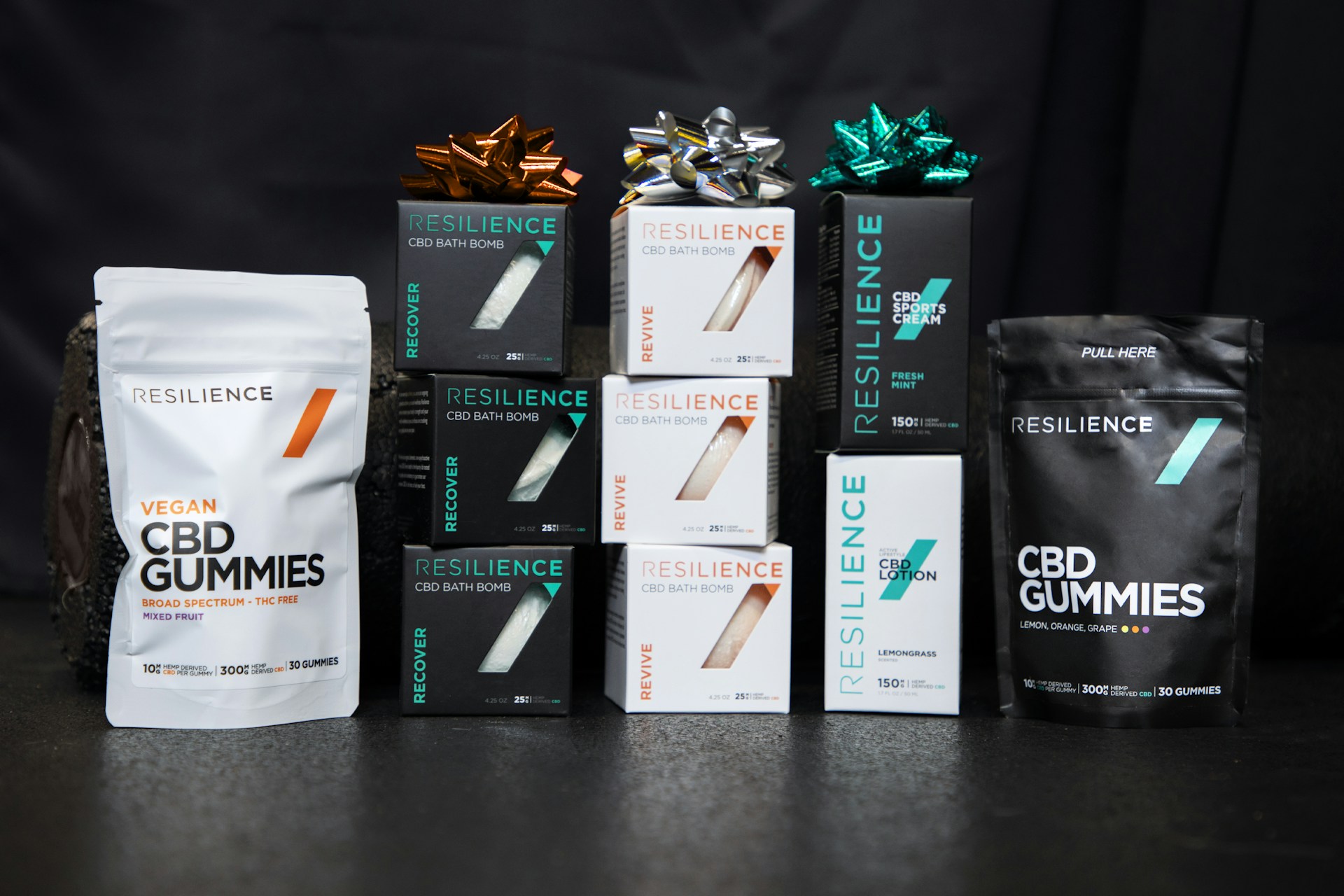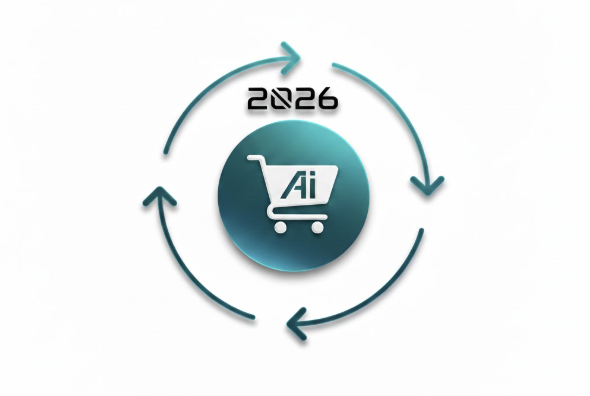AI Brand-Safety Checklist for Weight-Loss Products Ecommerce

Every unverified weight-loss claim, every unapproved ingredient mention, and every AI-generated promise of rapid results can trigger FDA warning letters, FTC enforcement actions, and devastating class-action lawsuits. Weight-loss ecommerce operates in one of the most scrutinized sectors of digital retail, where 1,424 adverse events have been reported for compounded GLP-1 drugs alone as of September 2025. Envive's AI agents provide the brand-safe automation that weight-loss retailers need to build trust while maintaining complete compliance control.
Key Takeaways
- The FTC requires scientific proof for all objective weight-loss claims before running ads, with penalties reaching $53,088 per violation
- AI systems can automatically flag up to 95% of unsafe image and video content, protecting brands from compliance violations
- Weight-loss supplement adverse events have led to 79,071 reports to the FDA between 2004-2021, making safety protocols essential
- 53% of US marketers now identify social media as the top threat to brand reputation
- Successful AI implementation requires multi-layered validation combining automated screening with human oversight for sensitive medical queries
- Modern weight-loss ecommerce must navigate prescription verification requirements, dietary supplement regulations, and platform-specific advertising restrictions
The $896.5 Billion Weight Management Market
The global weight management market, valued at USD 427.5 billion in 2025 and projected to reach USD 896.5 billion by 2035, attracts both legitimate businesses and bad actors. This explosive growth coincides with unprecedented regulatory scrutiny. There's been a 1200 percent increase in violative GLP-1 related ads since 2022, prompting aggressive enforcement actions.
The stakes for non-compliance are severe:
- Regulatory Penalties: FTC fines for deceptive advertising, FDA warning letters, mandatory product recalls
- Legal Exposure: Class-action lawsuits from consumers experiencing adverse effects
- Platform Bans: Permanent suspension from advertising platforms and marketplaces
- Reputation Damage: Loss of consumer trust that takes years to rebuild
- Financial Impact: Poison control centers report a 15-fold increase in GLP-1-related exposures since 2019
Why Generic AI Fails Weight-Loss Brands
Weight-loss products face unique challenges that standard ecommerce AI cannot safely navigate. Approximately 15% of U.S. adults have used weight-loss dietary supplements, yet less than one-third discuss this use with healthcare professionals. This creates an information vacuum where AI must provide helpful guidance without crossing into medical advice.
Generic AI systems lack understanding of:
- Prescription Requirements: Distinguishing between OTC supplements and controlled substances requiring medical oversight
- Claim Boundaries: Recognizing when product descriptions cross from legal supplement claims to illegal drug claims
- Adverse Event Risks: Understanding contraindications, drug interactions, and population-specific warnings
- Platform Policies: Meta's health ad restrictions limiting conversion optimization for wellness brands
- Cultural Sensitivities: Body positivity considerations while promoting weight management products
Core Components of Brand-Safe Weight-Loss AI
1. FTC Compliance Engine
The FTC has filed 120 cases challenging health claims for supplements over the last decade. Your AI must enforce strict compliance protocols:
Claim Verification System
Build comprehensive filters that recognize and block problematic claims:
- Red Flag Claims: "Lose 30 pounds in 30 days," "No diet or exercise needed," "Blocks fat absorption"
- Acceptable Claims: "Supports healthy weight management," "May help reduce appetite when combined with diet and exercise"
- Scientific Evidence Requirements: Every claim must be supported by competent and reliable scientific evidence
- Disclosure Protocols: Clear and conspicuous disclaimers that the net impression doesn't mislead
Realistic Expectation Management
The FTC notes that weight loss of more than a pound a week over a long period is unusual, even for effective products. AI must:
- Set appropriate timelines for results
- Avoid promising specific pound losses
- Include lifestyle modification requirements
- Reference typical results, not exceptional cases
2. FDA Regulatory Framework
Weight-loss products span multiple FDA categories, each with distinct requirements:
Product Classification Logic
- Dietary Supplements: Must comply with DSHEA regulations, cannot claim to treat obesity
- OTC Drugs: Products like Alli (orlistat) with approved drug facts labels
- Prescription Medications: Require valid prescriptions and licensed pharmacy partnerships
- Medical Foods: Special regulatory category with specific use requirements
- Compounded Products: Subject to FDA warning letters for misleading advertising
Adverse Event Monitoring
Implement real-time tracking for safety signals:
- Monitor FDA MedWatch reports
- Track customer complaints and returns
- Flag products with emerging safety concerns
- Maintain reporting obligations under mandatory reporting requirements
3. Prescription Verification Protocols
For brands selling prescription weight-loss medications, AI must enforce strict verification:
Telehealth Compliance
- Verify legitimate prescriber-patient relationships
- Ensure proper medical screening questionnaires
- Validate prescription authenticity
- Maintain HIPAA-compliant data handling
Controlled Substance Management
Some weight-loss medications are controlled substances requiring:
- DEA registration verification
- State-specific dispensing rules
- Refill limitations and monitoring
- Suspicious order monitoring systems
4. Customer Safety Screening
11% of teens have used weight-loss supplements, highlighting the need for age-appropriate safeguards:
Demographic Filters
- Age verification for certain products
- Pregnancy and nursing warnings (women report 21% usage versus men)
- Medical condition contraindications
- BMI appropriateness (avoiding promotion to healthy-weight individuals)
Interaction Checking
- Screen for medication conflicts
- Flag stimulant stacking risks
- Identify cumulative caffeine exposure
- Warning for pre-existing conditions
5. Ingredient Transparency System
Weight-loss supplements may contain dangerous stimulants like N,α-DEPEA (related to methamphetamine) or untested compounds:
Comprehensive Ingredient Database
- Complete ingredient listings with synonyms
- Banned substance checking (FDA prohibited ingredients)
- International restrictions (country-specific bans)
- Third-party testing verification
- Concentration limits and safety thresholds
Risk Communication Protocols
- Clear allergen warnings
- Side effect disclosures based on clinical data
- Drug interaction alerts
- Special population warnings
Implementation Roadmap for Weight-Loss Brands
Phase 1: Compliance Audit (Weeks 1-2)
Start with comprehensive risk assessment:
- Product Portfolio Review: Catalog all products by regulatory category
- Claim Inventory: Document every claim across marketing materials
- Platform Policy Mapping: Review current advertising restrictions
- Historical Issues: Analyze past customer complaints and returns
- Competitor Analysis: Study enforcement actions in your category
Phase 2: Technology Infrastructure (Weeks 3-4)
Build the technical foundation:
- Data Integration: Connect product information management (PIM) systems
- API Development: Create secure endpoints for AI integration
- Compliance Database: Import FDA, FTC, and platform guidelines
- Monitoring Systems: Establish real-time alert mechanisms
- Audit Logging: Implement comprehensive tracking for all AI decisions
Phase 3: AI Configuration (Weeks 5-6)
Customize AI for weight-loss specifics using Envive's platform:
- Training Data Curation: Upload compliant product descriptions and approved claims
- Safety Rule Development: Program red flags and automatic blocks
- Response Templates: Create pre-approved answer frameworks
- Escalation Paths: Define triggers for human intervention
- Testing Scenarios: Build comprehensive test cases
Phase 4: Testing and Validation (Weeks 7-8)
Rigorous testing prevents costly mistakes:
- Compliance Testing: Verify all responses meet regulatory requirements
- Edge Case Validation: Test unusual customer queries and combinations
- Performance Benchmarking: Measure response accuracy and speed
- Safety Protocol Verification: Confirm all warnings and contraindications work
- Platform Policy Compliance: Ensure adherence to advertising guidelines
Phase 5: Controlled Launch (Weeks 9-10)
Deploy systematically to minimize risk:
- Pilot Program: Start with low-risk dietary supplements
- Human Oversight: Maintain review of all AI interactions initially
- Gradual Expansion: Add prescription products only after validation
- Continuous Monitoring: Track compliance metrics daily
- Feedback Integration: Rapidly address any identified issues
Advanced Safety Strategies for Weight-Loss AI
Multi-Layer Validation Architecture
Implement cascading safety checks inspired by AI content moderation best practices:
- Query Analysis: Detect medical terminology, specific conditions, or crisis language
- Intent Classification: Determine if request involves prescription products or medical advice
- Content Generation: Create initial response within safety parameters
- Compliance Verification: Check all claims against approved database
- Human Review: Flag high-risk responses for expert validation
Real-Time Brand Safety Monitoring
Amazon Rekognition processes millions of images efficiently—apply similar principles to text:
- Continuous Scanning: Monitor all AI-generated content for compliance
- Pattern Recognition: Identify emerging problematic claim patterns
- Automated Flagging: Instant alerts for potential violations
- Performance Tracking: Measure false positive/negative rates
- Iterative Improvement: Refine detection algorithms based on outcomes
Crisis Management Protocols
Prepare for adverse events and regulatory actions:
- Rapid Response Plans: Pre-drafted communications for various scenarios
- Stakeholder Notification: Automatic alerts to legal and compliance teams
- Product Quarantine: Immediate suspension of affected product recommendations
- Customer Communication: Transparent updates about safety concerns
- Regulatory Cooperation: Established procedures for agency interactions
Measuring Brand-Safety Success
Track these critical metrics to ensure AI maintains compliance while driving growth:
Compliance Metrics
- Zero tolerance for FDA/FTC violations
- Claim accuracy rate (target: 100%)
- Platform policy adherence score
- Time to compliance issue resolution
- Audit pass rate
Safety Indicators
- Adverse event reports per thousand customers
- Successful age verification rate
- Prescription verification accuracy
- Drug interaction warnings issued
- Customer safety complaint rate
Business Performance
- Conversion rate for AI-assisted shoppers
- Cart abandonment reduction
- Customer lifetime value improvement
- Support ticket reduction for product questions
- Return rate for AI-recommended products
Why Envive Delivers Superior Weight-Loss Brand Safety
Envive's proprietary 3-pronged approach to AI safety—Tailormade Models, Red Teaming, and Consumer Grade AI—provides the robust protection weight-loss brands require. Unlike generic solutions, Envive has achieved zero compliance violations across thousands of conversations, demonstrating the platform's ability to maintain strict safety standards while driving conversions.
The platform's Sales Agent builds confidence and nurtures trust without making prohibited claims, while the CX Agent provides compliant support that loops in human experts for medical queries. This interconnected system remembers customer health considerations across all touchpoints, ensuring consistent, safe recommendations that have delivered 100%+ conversion rate increases for major brands.
Envive's brand safety protocols include pre-configured weight-loss compliance rules, automated FTC claim verification, and FDA category recognition that adapts to your specific product portfolio. The platform maintains complete brand control while ensuring every interaction meets regulatory requirements—proving that safety and performance align perfectly in weight-loss ecommerce.
Frequently Asked Questions
What AI safety measures are essential for weight-loss product ecommerce?
Essential AI safety measures include automated claim verification against FTC guidelines, FDA product category classification, real-time adverse event monitoring, age-appropriate content filtering, and prescription verification protocols. The system must distinguish between legal supplement claims and illegal drug claims while maintaining comprehensive audit trails. Multi-layered validation combining AI screening with human oversight for medical queries ensures compliance. Regular updates incorporating new regulatory guidance and platform policy changes keep the system current and compliant.
How can I ensure my weight-loss product descriptions are compliant?
Compliance requires verifying all claims against scientific evidence, avoiding specific weight-loss promises without lifestyle modifications, and including clear disclaimers about typical results. Product descriptions must stay within appropriate regulatory categories—dietary supplements cannot claim to treat obesity, while OTC drugs must follow approved labeling. Implement automated content screening that flags problematic language like "miraculous," "effortless," or specific pound-loss guarantees. Regular legal review and updates based on FTC enforcement actions maintain ongoing compliance.
What are the legal requirements for selling prescription weight-loss pills online?
Selling prescription weight-loss medications requires valid pharmacy licenses, DEA registration for controlled substances, legitimate prescriber-patient relationships, and compliant prescription verification systems. Telehealth partnerships must ensure proper medical screening and avoid prescribing based solely on online questionnaires. State-specific regulations may impose additional requirements. Maintain HIPAA-compliant data handling, implement suspicious order monitoring, and ensure proper patient counseling. Marketing must clearly indicate prescription requirements and avoid direct-to-consumer promotion of unapproved uses.
How do AI agents help prevent false weight-loss claims?
AI agents prevent false claims through real-time content analysis, comparing all statements against pre-approved claim databases and scientific evidence requirements. Natural language processing identifies subtle variations that could transform legal claims into violations. The system flags hyperbolic language, unrealistic timelines, and missing disclaimers before content publication. Continuous learning from FTC enforcement actions and warning letters improves detection accuracy. Integration with legal review workflows ensures human validation of borderline cases while maintaining efficient content production.
What customer support protocols are needed for weight-loss supplement stores?
Customer support requires clear boundaries between general information and medical advice, with automatic escalation for health concerns or adverse reactions. Implement screening questions to identify vulnerable populations like pregnant women or minors. Maintain documented procedures for handling adverse event reports, including FDA MedWatch reporting when required. Train AI to recognize crisis situations requiring immediate human intervention. Provide transparent information about return policies, ingredient sources, and third-party testing while avoiding unauthorized health claims in support interactions.

Other Insights

Insights with Ajinkya (Jinx) Joglekar

The Financial Inevitability of Custom AI Models

The Ecommerce Reset: What Matters Going Into 2026
See Envive
in action
Let’s unlock its full potential — together.






